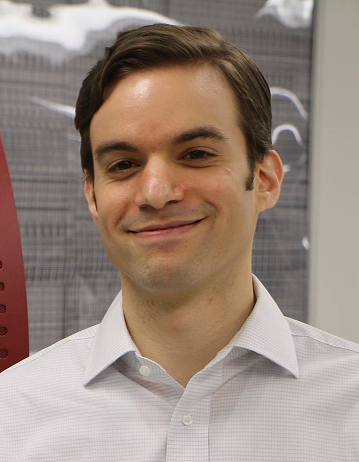IEEE CS Webinar: IEEE Oregon Section Technical Seminar - Hardware Security and Assurance: The Power of Reverse Engineering
Guest Speaker: Domenic Forte, Senior IEEE Member, Associate Professor and Steven A. Yatauro Faculty Fellow, Department of Electrical and Computer Engineering, University of Florida
Venue: Online
When: October 28th 6-7 pm
We hope to have you for another interesting talk by one of the experts that we invite from academia, industry, and government.
* As this online event is free and open to non-IEEE members, please feel free to share it with your colleagues, students, classmates, etc.
* For the abstract and biography of the speaker, please refer to the speakers section below.
* Please note that you will receive a registration confirmation email after you register for the event and you will receive a separate email containing the invite to the meeting later. You can add the link to the meeting invite to your calendar manually as the calendar invite does not get updated automatically.
Date and Time
Location
Hosts
Registration
-
 Add Event to Calendar
Add Event to Calendar
- Contact Event Host
-
Sohrab Aftabjahani, PhD
IEEE Oregon Section Computer Society Chapter Chair
Senior IEEE Member, Senior ACM Member
aftabjahani[AT-Sign]ieee.org
Speakers
 Domenic Forte, Senior IEEE Member, Associate Professor and Steven A. Yatauro Faculty Fellow, Department of Electrical and Computer Engineering, University of Florida
Domenic Forte, Senior IEEE Member, Associate Professor and Steven A. Yatauro Faculty Fellow, Department of Electrical and Computer Engineering, University of Florida
Hardware Security and Assurance: The Power of Reverse Engineering
Abstract:
Traditional cybersecurity focuses on software and networking and relies on an inherent trust of the underlying hardware. However, the argument that hardware is inherently trustworthy is no longer accurate. The economics of the modern semiconductor industry has created a horizontal supply chain that involves more and more untrusted organizations and IPs. With lesser oversight over supply chains, state level attackers and other hackers can surreptitiously modify integrated circuits (ICs), printed circuit boards (PCBs), and firmware (FW) with hardware Trojans, kill switches, backdoors, and other malware. In addition, e-waste, obsolescence, geopolitical events, and pandemic-related disruptions are incentivizing and facilitating counterfeit electronics.
Hardware assurance refers to activities to ensure a level of confidence that electronics function as intended and are free of known vulnerabilities, either intentionally or unintentionally inserted into a system's hardware throughout its life cycle. Although reverse engineering is often presented in a negative light, it may be the only foolproof method for providing hardware assurance, especially for commercial-off-the-shelf (COTS) ICs and PCBs where little prior information is available. In this talk, we shall present the recent advances in side-channel based FW reverse engineering as well as IC/PCB reverse engineering steps: delayering, imaging, automated image analysis, and automated annotation. Further, we will delineate the scenarios where reverse engineering can support hardware security and assurance. Finally, we will describe the gaps that need to be filled before realizing the ideal hardware assurance flows.
Biography:
Domenic Forte is an Associate Professor and the Steven A. Yatauro Faculty Fellow with the Electrical and Computer Engineering Department at University of Florida. His research covers the domain of hardware security from nano devices to printed circuit boards (PCBs) where he has nearly 200 publications. Dr. Forte is a senior member of the IEEE, a member of the ACM, and serves on the organizing committees of top conferences in hardware security such as HOST and AsianHOST. He also serves and has served on the technical program committees of DAC, ICCAD, NDSS, ITC, ISTFA, BTAS, and many more. Dr. Forte is a recipient of the Presidential Early Career Award for Scientists and Engineers (PECASE), the Early Career Award for Scientists and Engineers (ECASE) by Army Research Office (ARO), the NSF Faculty Early Career Development Program (CAREER) Award, and the ARO Young Investigator Award. His research has also been recognized with best paper awards and nominations from IJCB, ISTFA, HOST, DAC, and AHS.
Brought to you by Computer Society - Oregon Chapter .
* Please contact Sohrab Aftabjahani , IEEE Oregon Computer Society Chapter Chair, if you are interested to serve as an officer for this chapter as a few officer positions are open.

